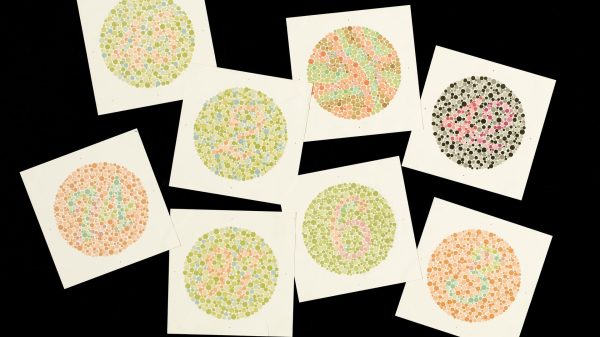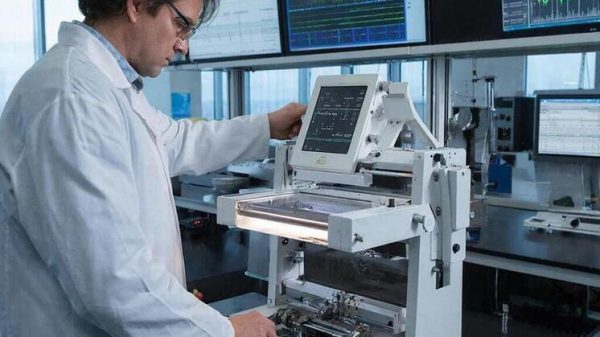Disaster warnings may be exaggerated, researcher says
The scientist who believed “we will all die from climate change” reveals 7 reasons why she was wrong. A data scientist says alarming disaster warnings may be exaggerated. According to its findings, per capita emissions peaked in 2012 — and are still about the same.

A scientist who believed people would die from the climate crisis has changed her mind and now believes the problem may have been overblown, writes the Daily Mail.
Hannah Ritchie, a data scientist at the University of Oxford, says that warnings of floods, widespread famine and deaths from natural disasters are overshadowing the progress that has been quietly made in recent years.
She pointed out that emissions per capita peaked in 2012 and have remained constant since then. She also opined that organic food is not climate-friendly.
Ritchie, who published the book It's Not the End of the World, recently shared seven key moments that made her change her stance on the climate crisis .
“To get this out of the way, let me make one thing absolutely clear: I am not a climate change denier, nor am I minimizing it,” reads an excerpt from Ritchie’s book. “I have spent my life—at work and at work.” beyond — researching, writing and trying to understand our environmental problems and how to solve them.»
She went on to explain that it might do less harm to consider the total loss of life to be an exaggeration, since «exaggeration simply serves as a counterbalance to those who downplay the problem.»
«But I am convinced that there is a better, more optimistic and honest way forward.»
Here are seven reasons that made Hannah Ritchie change her mind.
First: the little things distract from the big picture. Excessive exaggeration is what apparently prompted Ritchie to do a 180-degree turn on the issue, finding that it was distracting us with small issues, writes the Daily Mail.
In an article for The Times, the scientist shared that most people are told to recycle, use energy-efficient light bulbs and avoid single-use plastics. But in the grand scheme of things, such actions are minor and only cause stress, such as forgetting a canvas bag when visiting the grocery store.
«What's often missing are the big things: installing a heat pump, adopting a plant-based diet, reducing food waste, buying green energy, and driving and flying less,» writes Hannah Ritchie.
< p>These changes, she explained, have the biggest impact on reducing a person's carbon footprint, while eliminating plastic straws causes only minor damage—reports show that 0.025 percent of plastic pollution comes directly from straws.
Second: Debunking the Myth of Local and Organic Food
Many restaurants proudly claim that the items on their menu are either locally sourced or organic, or sometimes both. The idea behind purchasing these products is that they reduce greenhouse gas emissions due to shorter shipping distances and the fact that organic crops do not use fossil fuel-based fertilizers.
Ritchie highlighted the results of a 2021 survey that found that six in 10 people worldwide believe that eating locally produced food, including meat and dairy, is the best way to reduce human greenhouse gas emissions.
However, the scientist refuted this idea, saying that food miles account for only five percent of global food industry emissions.
Ritchie went on to explain that reducing emissions is not about where your food comes from, not your food choices.
A recent study from the University of Oxford found that eating just 100g of meat a day — less than one burger — creates four times more greenhouse gases than a vegan diet.
Ritchie noted that it may be a surprise to most people to hear that organic food isn't all it's cracked up to be. The reason this option is not the most climate-friendly is that organic fertilizers also release greenhouse gases and pollute water supplies. In addition, organic farms require more land, which in turn leads to increased carbon emissions.
And a 2020 study by researchers Maximilian Pieper at the Technical University of Munich found that organic meat production leads to the same amount of greenhouse gas emissions as conventional meat.
“Nuclear power, dense urban living and processed food can all be good for the environment, even if they go against our instincts,” Ritchie wrote for the Times. “If we want to make these decisions, 'sustainable living' «needs rebranding.»
Third: people have overcome the environmental crisis
The world has faced a near-global catastrophe since the 1980s, when British meteorologist Jonathan Shanklin discovered a hole in the ozone layer. The hole, which made global headlines, was created by the release of man-made chemicals into the atmosphere, specifically CFCs (chlorofluorocarbons). This discovery led to the signing in December 1987 of the Montreal Protocol, an international agreement to phase out CFC production and close gaps.
However, the scientists' concerns were initially refuted by government officials, who downplayed the ozone layer problem. But eventually world leaders came together to form the Montreal Protocol, an international agreement to phase out CFC production, which was signed in December 1987. Since then, CFC emissions have dropped by more than 99 percent, and the hole is slowly closing.
Ritchie talked about how people dealt with acid rain in Europe and North America in the 190s and 80s. “Strict controls have been introduced at power plants, and emissions of sulfur dioxide, which causes acid rain, have been reduced by more than 85 percent in many countries,” she wrote. “There are things we can learn from past successes, lessons that should put pressure on on our leaders to do better.»
Fourth: Per capita emissions have peaked. According to the global carbon forecast, carbon dioxide emissions will rise by about one percent in 2023, but this figure is much lower compared to the 1990s and early 2000s.
Ritchie explains that emissions have «reached a long plateau» over the past five to ten years, suggesting the world is approaching its peak.
«That's not enough now: we urgently need to peak and then reduce our emissions to try to get on a better trajectory,» she shared.
Global emissions per capita peaked at 5.4 tons in 2012, which has remained roughly in the same range since then. And in 2021 there was even a noticeable decline due to the Covid-19 quarantine.
Fifth: Ritchie noted that one way people can combat climate change is by using clean energy and low-carbon products.
The scientist explained that personal choices send a signal to governments that things like electric cars, solar panels and plant-based food.
When there is demand for these products, Ritchie explained, prices will begin to fall and the products will become more affordable. «This is especially important for wealthier consumers, who can afford to be first and make it cheaper for those who follow,» she wrote in the Times.
Six: Hannah Ritchie explains that alternatives to fossil fuels are more affordable in our modern world, noting that solar energy costs have dropped by 90 percent and wind energy by 70 percent.
Electric cars aren't just driven by the wealthy either—the average person can purchase one for just over $27,000 — and are cheaper to maintain than those that run on gas, writes the Daily Mail.
“This puts us in a much better position than ever to combat climate change,” Ritchie explained.
And finally, the seventh reason. Many countries have made historic commitments to limit global warming to 2.7 degrees Fahrenheit, but evidence suggests we are sure to exceed it by 2030.
The warming target was perceived as a «threshold» and once it is overcome, we will enter a time of environmental catastrophe. “But that’s not true,” says Hannah Ritchie. “The effects of climate change increase with every step of warming. And they increase non-linearly: so an increase from 1.8 to 2.7F is not as dramatic as an increase from 2.7 to 3.” 6F.»
If the world sees 2.7F as falling off a cliff, then we will need to continue to fight every increase in warming. «This will limit the effects of climate change and ultimately save lives. It is never too late for us to act,» Ritchie concluded.






















































Свежие комментарии